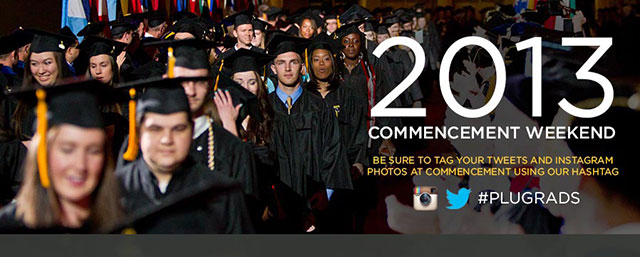Page 50 • (660 results in 0.031 seconds)
-
The University of Washington PREP (Post-Baccalaureate Research Education Program) is currently accepting applications for the class of 2022-2023. They seek individuals who are members of groups underrepresented in biomedical sciences, including those with disabilities, who are US citizens or hold permanent resident status, have great potential and enthusiasm…
University of Washington Post-Baccalaureate Research Education Program Posted by: nicolacs / Decembe
-
Are you a student looking for a professional opportunity to learn about homeland security related research to enhance your research interests and career goals? Do you want to learn from top scientists and subject matter experts in homeland security disciplines and areas of research? Do…
US Dept of Homeland Security Summer Research Opportunities Posted by: nicolacs / November 4, 2021 No
-
Are you a rising sophomore, junior or senior looking to complete an REU this summer? Applications for USM’s School of Polymer Science and Engineering REU program close on February 1 st , 2024! What to expect Hands on research Workshops, team building, field trips…
USM School of Polymer Science and Engineering REU Posted by: nicolacs / January 23, 2024 January 23,
-
Oregon Health and Science University (OHSU) graduate students will develop a broad understanding across biomedical disciplines with strong foundations in quantitative literacy and critical thinking. This allows our students to identify important biomedical questions, design and execute experimental approaches, conduct data analysis and interpretation, and…
Virtual Open House – Oregon Health and Science University Posted by: nicolacs / September 24, 2021
-
The Northwest Center for Occupational Health and Safety (NWCOHS) at the University of Washington prepares graduate students for careers in worker health and safety through training programs, significant financial support and community-engaged research opportunities. The NWCOHS offers funded graduate training for MS and PhD degrees. They…
Webinar On Careers In Worker Health and Safety NWCOHS Information Session Posted by: nicolacs / Octo
-

For the 2012-2013 academic year, 877 students will have graduated from PLU. Spring Commencement takes place Sunday, May 26 in the Tacoma Dome. (Photo by John Froschauer) In their own words Compiled and edited by Chris Albert This spring, new PLU graduates closed a chapter…
physics with minors in mathematics and music Why PLU? I chose PLU because of the people and the opportunities. I was looking for a place where classes were small enough to hold conversations with professors and classmates and to get to know professors one on one. Having the option to take classes in different majors and to find my passion was what I was looking for in a university and PLU fit that perfectly. Even more so, the extracurricular clubs, campus activities, and study abroad program pushed
-
The Department of Chemical and Environmental Engineering at the University of Arizona is holding a virtual information session (via Zoom) regarding their five graduate programs. They are currently accepting graduate applications for the Fall 2022 semester with a priority consideration deadline of December 15th and…
Chemical and Environmental Engineering at the University of Arizona Posted by: nicolacs / October 21
-
INMED – Reimagine IndianS into MedicinE (RISE) Summer Academy 2021 The RISE Summer Academy, a 6-week program, will be open to 28 American Indian/Alaskan Native (AI/AN) Focus of the RISE Summer Academy: MCAT Prep: The program will provide a full MCAT course through Kaplan to…
INMED – Reimagine Indians Into Medicine (RISE) Summer Academy 2021 Posted by: nicolacs / February
-
The SURF program is designed to inspire undergraduate students to pursue careers in STEM (science, technology, engineering, and mathematics) through a unique research experience that supports the NIST mission. Since 1993, SURF students from across the country have had the opportunity to gain valuable, hands-on…
National Institute of Standards and Technology (NIST) SURF Program Posted by: nicolacs / December 6,
-
Ignite your career at Pacific Northwest National Laboratory. Attend this four-day virtual event and speak with staff and recruiters about career opportunities available across the lab. Career Connections is free and open to all potential applicants, regardless of career level, grade level, or academic program.…
Pacific Northwest National Laboratory (PNNL) Virtual Career Connections Event Posted by: nicolacs /
Do you have any feedback for us? If so, feel free to use our Feedback Form.


